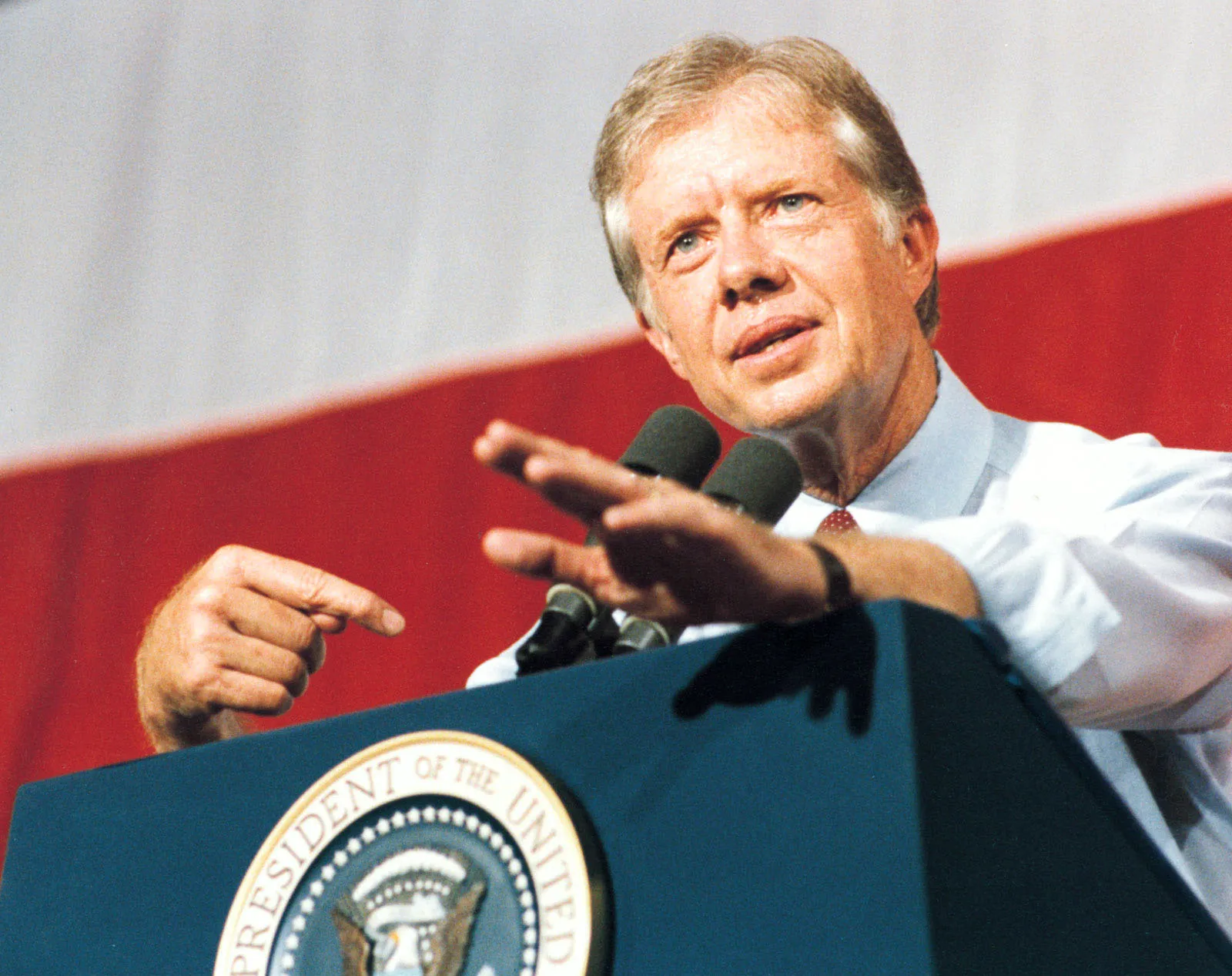Jimmy Carter, 39th U.S. President and Nobel Peace Laureate, Dies at 100
From the peanut fields of Georgia to the halls of the White House and beyond, Jimmy Carter's life stands as a beacon of service, resilience, and compassion

Jimmy Carter passes away at 100.
Jimmy Carter, the 39th President of the United States and a towering figure in humanitarian efforts worldwide, passed away on December 29, 2024, at the age of 100. Carter died peacefully at his home in Plains, Georgia, a town where his remarkable journey to the Oval Office began. His passing marks the end of an extraordinary century of life dedicated to service, equality, and global peace.
Born in 1924, Carter grew up on his family's peanut farm in Plains, cultivating a deep connection to the values of hard work and community. After serving in the Navy, he returned to Georgia and entered politics, championing racial and gender equality. In 1970, he was elected governor of Georgia, earning a reputation as a progressive leader during a time of significant social change.
Carter rose to national prominence when he was elected president in 1976. In the aftermath of the Watergate scandal and the Vietnam War, he offered a message of honesty and moral integrity, appealing to a nation hungry for leadership rooted in ethics and humility.
His presidency, beginning in 1977, was marked by notable achievements, including the groundbreaking Camp David Accords, which established peace between Egypt and Israel, a major milestone in Middle East diplomacy.
However, Carter’s administration struggle to cope with economic difficulties such as inflation and energy crises, as well as the protracted Iran hostage crisis, where 52 Americans were held captive for 444 days would ultimately overshadow his achievements and lead to his defeat by Ronald Reagan in the 1980 election. Despite leaving office with low approval ratings, Carter was undeterred in his commitment to public service.
Following his presidency however, ‘Hot Shot’ redefined what it meant to be a former president.
In 1982, he and his wife Rosalynn founded the Carter Center, an organization dedicated to promoting human rights, eradicating diseases, and resolving global conflicts. His efforts in advancing peace and democracy around the world earned him the Nobel Peace Prize in 2002, making him the only U.S. president to receive the honor for post-presidential work.
Carter's influence extended far beyond politics. His humanitarian efforts included working with Habitat for Humanity to build homes for underserved communities and combating diseases such as Guinea worm and river blindness in impoverished regions. He also became a key figure in mediating international conflicts, notably undertaking a peace mission to North Korea to address nuclear disarmament.
The former President also had deep ties to this land. His mother, Lillian, had served as a Peace Corps volunteer in Haryana, a connection that led to his impactful visit to the Indian village of Daulatpur Nasirabad in 1978. Renamed "Carterpuri" in his honour, the village celebrated his Nobel Peace Prize win and continues to commemorate his contributions.
Carter's personal life was defined by his devotion to his family. Married to Rosalynn for 77 years, their enduring partnership was a testament to their shared commitment to service. Rosalynn passed away in November 2023 at the age of 96. Together, they raised four children and were blessed with a large extended family, including 11 grandchildren and 14 great-grandchildren.
Jimmy Carter's passing has prompted an outpouring of tributes from leaders and citizens worldwide. UN Secretary-General António Guterres praised his lifelong dedication to peace and security, while President Joe Biden described him as a man of "principle, faith, and humility."
